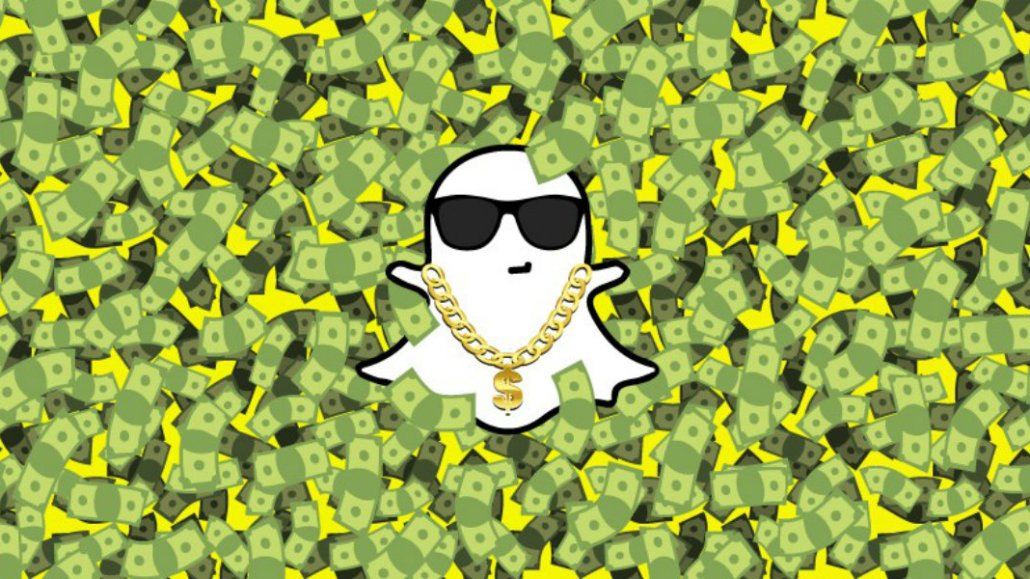Secure your place at the Digiday Publishing Summit in Vail, March 23-25
Snapchat to advertisers: Our ads can be just as effective as Facebook’s

In an effort to win over skeptical advertisers, Snapchat says its ad-tracking abilities are comparable to what brands get from much bigger rival Facebook.
“Snapchat’s measurement is on a par with Facebook,” said Andy Pang, head of research and measurement for the mobile messaging app in Europe, the Middle East and Africa. “In a much shorter period of time [than our rivals], we’ve got to a stage where we’re providing the market with the tracking, verification, viewability, reach and resonance tools they want to evaluate our performance on.”
A partnership being announced June 13 with ad tech company LiveRamp is Snapchat’s latest attempt to prove its doubters wrong. The two are launching a tool called Offline Sales Impact that will match data on Snapchat users with data from one of the U.K.’s largest supermarket loyalty programs in an attempt to measure Snapchat ads’ impact on packaged goods sales. Snapchat wouldn’t name the U.K. retailer (two agency sources said it’s Sainsbury’s), but said early tests on several campaigns for products including Cadbury & Oreo-flavoured chocolate bars achieved an average sales uplift of 4 percent.
Snapchat has tried to show the impact of its ads on in-store sales before, using Oracle’s data in a similar partnership with a U.S. retailer. Like Oracle, the Acxiom-owned LiveRamp partnership gives brands in the U.K. a way of gauging their ads’ impact using a credible third party.
More third-party measurement is on the way to the U.K. Snapchat’s marketing mix modeling partner program also arrives June 13 after having launched in the U.S. last summer.
The hope is the additional metrics pushes brands and their agencies to spend more on Snapchat’s ads by giving marketers access to third-party measurement data from companies including the data arms of Dentsu Aegis and Publicis. Advertisers will have access to Snapchat’s measurement experts and campaign data for modeling.
Snapchat’s thinking is, if it can offer metrics like add to cart, start checkout, sign-ups and more to marketers via the marketing mix modeling program, its ads will be more comparable to direct-response alternatives on, say, Facebook and Instagram.
But Snapchat’s metrics require a long-term approach to media spending, which Deborah King, head of social for Essence in Europe, the Middle East and Africa, said most clients aren’t yet prepared for.
As innovative as Snapchat is viewed among advertisers, it is still a footnote on many media plans. Brands still want more effectiveness from the app’s ads before they buy more of them , according to interviews with media buyers from iProspect, Essence, Byte, Roast, and Ralph.
Pang said Snapchat has advanced, but acknowledged that it’s been hard for buyers to keep up. It went from only offering four measurement tools to advertisers 18 months ago to having more 14 they can pick from now. “We have evolved as a business so rapidly that it’s sometimes quite difficult to stay on a similar level to the people in our organization,” Pang said.
The recent updates won’t satisfy everyone. Some ad executives will say the changes don’t let them calculate the return on ad spend, which is different from tracking return on investment. This limitation could be a drawback for brands hoping to measure the quality and value of the sale alongside the lifetime value of a customer. Advertisers also can’t get unduplicated reach and frequency across multiple campaigns or a specific time frame, based on Snapchat’s pitch.
Snapchat’s reputation with brands is shifting. For every new spender like eBay on the app, there’s another like Adidas considering whether to spend more on it. Snapchat is catching up with other platforms that are better known as performance marketing vehicles, agency execs said. Clients at digital agency Roast, for example, use Snapchat as a performance channel because it typically drives a lower cost per click than platforms like Instagram due to the lack of competition. Advertisers at other agencies are starting to see consumer goods companies and entertainment think about running performance campaigns as it gets easier to know if those ads worked. Seb Redenz, head of paid social at iProspect, said clients are giving Snapchat a chance, with test campaigns underway to determine how cost per action on Snapchat compares with the competition.
More in Media

Why more brands are rethinking influencer marketing with gamified micro-creator programs
Brands like Urban Outfitters and American Eagle are embracing a new, micro-creator-focused approach to influencer marketing. Why now?

WTF is pay per ‘demonstrated’ value in AI content licensing?
Publishers and tech companies are developing a “pay by demonstrated value” model in AI content licensing that ties compensation to usage.

The case for and against publisher content marketplaces
The debate isn’t whether publishers want marketplaces. It’s whether the economics support them.








